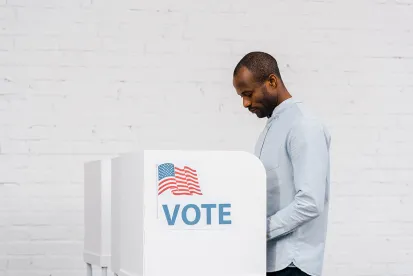Votes are still being counted as this article goes to press, but enough has been decided that certain observations are possible.
First, though there is controversy, it appears that Joe Biden will be declared the winner. It could be messy, but this appears to be what will be the end result.
Second, it appears Republicans will retain a majority in the Senate. They picked up a current Democratic Senate seat in Alabama, while losing Republican Senate seats in Colorado and Arizona. As of this writing, North Carolina is close, though the incumbent Republican Senator Thom Tillis has a lead and has declared victory. So, it now appears that Republicans have picked up one formerly Democratic seat to offset the loss of two or three seats depending on the outcome in North Carolina. Regardless of the ultimate outcome in North Carolina, however, Republicans will have a minimum of 51 seats.
Thus, Republicans are set to hold a majority in the Senate next year. All this is assuming that both of the Georgia Senate seats remain in Republican hands, which election numbers indicate will be the case even though a runoff will have to confirm this. Georgia will hold a runoff election right after the first of the year.
As has often happened, the American people have again seemingly declared that they do not want either party to have total control of the federal government. As a general rule, unless highly dissatisfied as they were in 2016, the voters prefer checks and balances. This election also shows just how politically divided this nation has become.
For our present purposes, we will assume a Biden win with a Republican majority in the Senate. What then does this portend for banks?
First of all, the new administration will make dramatic changes in the regulatory agencies. For example, the left wing of the Democratic Party will push hard to have a new Consumer Financial Protection Bureau (CFPB) director named. This could make a major difference in enforcement policies at the Bureau, as well as in its promulgation of regulations. Currently, for example, the CFPB is drafting proposed regulations to implement Section 1071 of the Dodd-Frank Act, which mandates that lenders collect and maintain information on the race, gender, and ethnicity of small-business borrower applicants and the result of the lending request. The current outline the CFPB has released regarding its approach to this process indicates they might provide asset-size exemptions, which could eliminate the burden on small banks. A new director might well alter this approach to exemptions. The activist community has already signaled that it wants the broadest application possible of Section 1071.
Changes in leadership will also be made at the bank regulatory agencies. A new comptroller would be in the offing. Again, the activist community and its champions, such as Senator Elizabeth Warren, will push activists for these positions.
Speaking of Senator Warren, she is making a concerted bid to be named Secretary of the Treasury. While Wall Street gave heavily to the Biden campaign and would oppose such an appointment, Warren's allies might have the political clout to obtain the nomination for her. The confirmation process could prove problematic, however. Similarly, there is an effort to have Senator Bernie Sanders named Secretary of Labor.
In terms of Congress, the election will move the Senate Banking Committee slightly to the left. Senator Doug Jones was a swing Democrat on that committee, along with Senator Jon Tester. He will be replaced, in all likelihood, by a more party-line Democrat who will follow the lead of the ranking Democrat on the committee, Senator Sherrod Brown of Ohio.
Senator Pat Toomey will step up to chair the Senate Banking Committee, replacing Senator Mike Crapo. Senator Crapo is a thoughtful conservative chairman, but Senator Toomey is much more an activist by nature. The committee has recently done very little. This is likely to change with Senator Toomey.
On specific legislation, the lame-duck session is unlikely to produce major breakthroughs. There is still a chance that the SAFE Banking Act will be attached to something. Its lead champion in the House, Congressman Ed Perlmutter, sits on the House Rules Committee and has said privately that he intends to attach it to something going to the House floor. In the Senate, the bill is losing its primary champion, Senator Cory Gardner, who was defeated in Colorado. While the legislation involves banking for marijuana businesses, which Senator Mitch McConnell does not favor, it also addresses the problems facing hemp growers and businesses. Hemp could become a major crop in the South. Senator McConnell is a strong advocate of the hemp industry. So, I believe it could still be enacted this year.
On issues like Bank Secrecy Act/Anti-Money Laundering (BSA/AML) reform, the new administration is likely to be an obstacle. Biden is generally a hard-liner in such areas. He will likely back up the Financial Crimes Enforcement Network (FinCEN) in its opposition to major changes.
On the tax front, the new administration will attempt to roll back the Trump tax cuts. The Senate will likely block such an effort. On the other hand, a major infrastructure bill is likely to be enacted. Also, I think relief for rural hospitals is possible since it could cut across party lines.
So, on balance, banks are facing less of a political challenge now than seemed to be the case going into the election. Had the Democrats taken a majority in the Senate, the smart money assumed that they would abolish the filibuster which could have presented real challenges as Chairman Maxine Waters sent over a slew of bills. But with the two chambers of Congress in different hands, it appears that continued gridlock is in our forecast.




 />i
/>i

